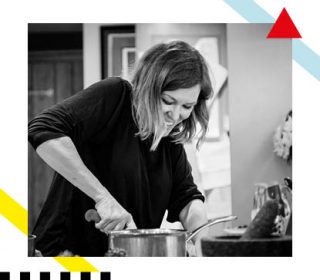Resolving Conflict at Christmas

Christmas should be a time of peace and joy, but all too easily, it can erupt into arguments, family rows and meltdowns, thanks to of the combination of drink, exhaustion and being cooped up with people we’ve not seen in a while. Conflicts can break out at any time in our lives, not just at Christmas. And whether it’s a family rift, an infuriating neighbour or a stressful work situation, sooner or later, they need to be addressed. We often feel we don’t have the means to deal with conflict, so it could be enormously helpful to learn new techniques to transform challenging situations.
SEEING “THE ENEMY” AS HUMAN
The reason we often feel helpless when we find ourselves in situations of conflict is because they threaten us at our deepest primal core. With this understanding we do not need to blame ourselves, but we do need to learn effective tools to shift and melt such conflicts.
Buddhist teachings are a huge resource when it comes to dealing with difficult life experiences. One of the best known is mindfulness. This is the capacity to become aware of what is happening in our inner and outer life, rather than living on autopilot. It is presence, awareness, and an ability to look directly at what we are experiencing.
Imagine what could happen in conflict situations if we were able to clearly see how we label the other person as ‘the problem’, and then let the labelling pass by. What
would happen to our anger if we saw them as someone with issues and problems, just like us? Or if we glimpsed sadness behind their eyes? Mindfulness can help us step into the other person’s shoes, which is the basis for dissolving all conflict. According to Buddhist teachings, our ability to do that is called ‘sacred’.
CREATING DIALOGUE
The Israel Insight Society (the foremost organisation in Israel teaching meditative practices) uses mindfulness in its many peace-building workshops between Israelis and Palestinians. The first step involves cultivating an atmosphere of unhurried, friendly communication without agenda, accompanied by tea and biscuits. When you want to talk to your difficult neighbour, and a safe place and start with relaxed conversation before getting into the hardcore issues.
Then we move to mindfulness in dialogue and deep listening, which is when peace can be created. Deep listening involves giving full attention to the words, meaning, body language and presence of whomever is talking, and at the same time being aware of our own views, reactions and feelings. We asked participants to use ‘I’ language, rather than ‘you are’ or ‘you did’. When an Israeli or Palestinian feels the life-suffering violence brought to the other, everything changes. Mindfulness allows you to see who is really sitting in front of you. Suddenly the ‘cruel occupier’ or ‘terrorist’ becomes a family man or a struggling student. If we sit with someone we are in conflict with and ask them about their daily difficulties, they become human.
BEING IN THE MOMENT
Mindfulness also opens the door to forgiveness because we see for ourselves that every moment is new with fresh possibilities. The only thing that drags disputes on and on is our stories, narratives and the hurts we carry. If we see clearly being in the moment resets the past, we can step out of old tracks and begin anew.
Buddhist teachings are of the heart as well as of the mind. Mindfulness trains the heart to open the channels of compassion and friendliness – to be for, not against, ourselves and others. We did peace walks throughout the length and breadth of Israel and Palestine using this teaching, and it brought tears to the eyes of people in the street, to see Jews and Arabs quietly walking together, emanating care to everyone and demonstrating how peace is possible. A famous Buddhist statement reminds us that hate is never removed by more hate, but by its opposite, namely love.
STAYING CALM
Conflict is sustained by chains of actions and reactions. It can be stopped by cutting the chains of reactivity. But surely, you might ask, if someone is shouting at us, how can we not respond? The answer is that one of the fruits of mindfulness practice is an ability to watch the coming and going of experiences, both pleasant and unpleasant, with more detachment and stability. When we apply this to conflict situations, we will find ourselves less easily disturbed by what others say or do. In one of our workshops, Israelis and Palestinians suddenly started to scream at each other. I couldn’t control it, so I sat quietly until the anger petered out. I turned to the Palestinian co-facilitator, and said, “Sorry, I lost it”. “No”, she answered, “You didn’t. You radiated a quiet steadiness which settled everyone remarkably quickly”. It’s just like the start of Rudyard Kipling’s poem If (If you can keep your head when all about you are losing theirs…).
In the midst of harsh words, be aware of your inner space and quiet, and you will find you don’t always need to respond. This is not indifference, it is equanimity – a steadiness like the ballast on a ship that stops it rolling from side to side with every wave. From this place you will be able to cut the painful chains of reactivity, and you may be able to o er new ideas that can transform the situation.











